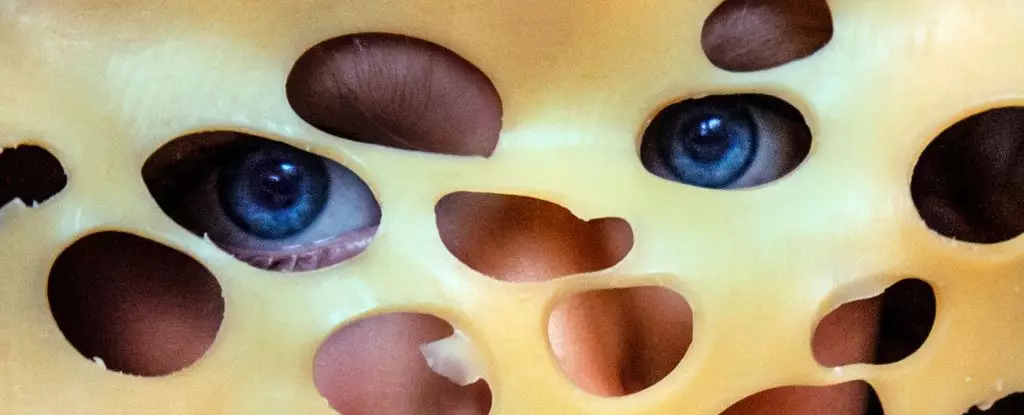For years, countless individuals have fallen victim to the superstition that certain foods—particularly dairy and sweets—are direct culprits behind restless nights and unsettling dreams. Media, anecdotal stories, and even some scientific studies have perpetuated this myth, leading many to blame cheese, chocolate, or sugary treats for their nightly torment. As a society that increasingly seeks simple explanations for complex phenomena, we often gravitate toward scapegoats like food without appreciating the nuanced realities that govern sleep and dreams. It is high time we critically evaluate these claims rather than accept them at face value. The premise of a straightforward causation—food consumption before bed directly causing nightmares—is an oversimplification that detracts from genuine understanding of sleep psychology and individual differences.
Questioning the Scientific Underpinning
The recent study conducted at the University of Montreal, while intriguing, exemplifies the limitations of self-reported data and small sample sizes in forming robust scientific consensus. The survey of 1,082 university students provides a fascinating glimpse into subjective perceptions, but it’s far from definitive evidence. The respondents’ beliefs about dairy or sweets causing nightmares are based on personal memories and assumptions, which are inherently biased and influenced by cultural narratives. Moreover, the connection made between lactose intolerance and disturbed sleep underscores a biological component, but it is not yet conclusive whether this correlation indicates causation. The physiological effects, such as gastrointestinal discomfort, are plausible explanations for disrupted sleep, yet attributing nightmares solely to food intake neglects the multifaceted nature of sleep architecture and psychological factors involved in dreaming.
Deconstructing the Simplistic Tales of Dairy and Desserts
Popular culture’s fixation on dairy as a nightmare trigger is a prime example of how myths persist because of anecdotal reinforcement rather than scientific validation. While some individuals with lactose intolerance may experience sleep disruptions influencing their dreams, it is irresponsible to generalize this experience to the broader population. Dream content and recall are highly subjective, influenced by stress, mental health, and individual sleep patterns—factors that far outweigh nutritional timing. Moreover, the idea that eating healthier correlates with more positive dreams might reflect overall wellness rather than specific dietary choices affecting dreams directly. It is dangerous to simplify complex neurological processes to cause-and-effect assertions without rigorous experimental backing.
Implications for Dietary Choices and Sleep Hygiene
This discussion should not be dismissed entirely—there is a valuable lesson about the importance of overall diet quality and mindful eating habits. A balanced, nutritious diet, consumed at appropriate times, undoubtedly contributes to better sleep quality and mental health. The emphasis should shift from fixing blame on certain foods to fostering a holistic approach to health. Encouraging people to reduce late-night junk food consumption and indulge in wholesome meals might improve sleep on multiple fronts—not just by reducing the likelihood of nightmares, but also by promoting mental clarity and emotional resilience. Rather than obsessing over whether cheese causes bizarre dreams, we should prioritize creating environments and habits that support restful sleep, including stress management, regular sleep schedules, and dietary mindfulness.
Moving Toward Evidence-Based Understanding
It’s essential for future research to go beyond subjective surveys and perform controlled experiments that can establish causality. Raw, scientific data is needed to determine whether specific foods measurably influence dreams or sleep patterns. Only then can we move past myths and embrace evidence-based practices that genuinely improve sleep health. Until that time, skepticism should be our guide. Over-interpreting preliminary or flawed studies fosters misconceptions and can divert attention from more impactful health strategies. True progress lies in recognizing the complexity of sleep biology and mental health, rather than succumbing to oversimplified narratives that blame food as the sole villain.
The idea that cheese or sweets are direct catalysts for nightmares is an appealing but ultimately misleading narrative. Our understanding of sleep and dreams should acknowledge the intricate web of psychological, physiological, and environmental factors involved. It is through critical analysis, cautious interpretation of preliminary findings, and a commitment to scientific rigor that we can truly improve sleep health—without falling prey to sensationalist myths.

